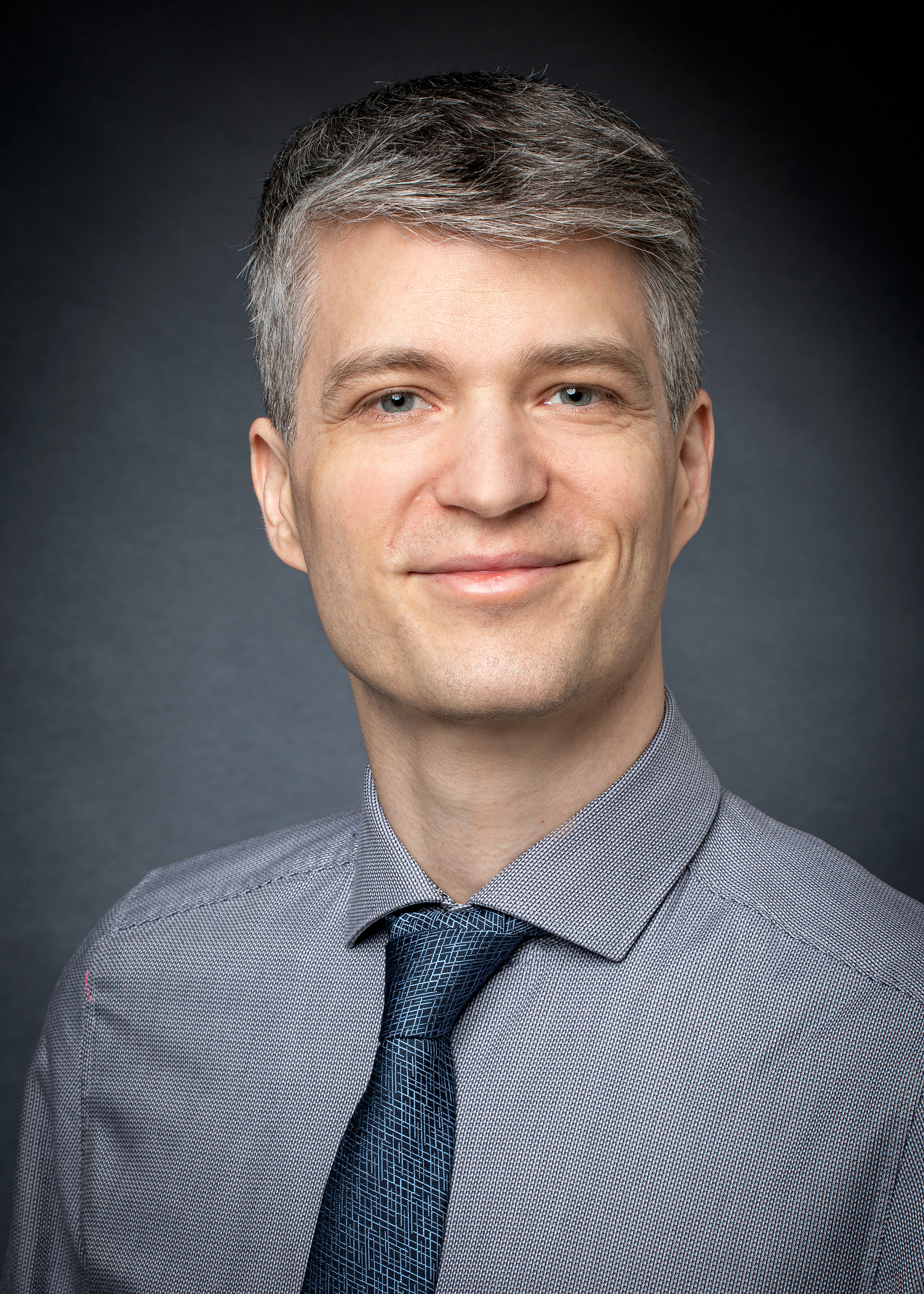Talking with
Univ.-Prof. Dr. Andreas Koeberle
Head of the Department of Pharmacognosy
What exactly does a professor of pharmacognosy do?
Pharmacognosy, synonymous with pharmaceutical biology in Austria, is an interdisciplinary field of research with numerous interfaces to other pharmaceutical and biomedical disciplines. Originally, the focus was on the chemical-analytical investigation of medicinal plants and the quality control of herbal medicines. However, the field has developed considerably in recent decades and now encompasses a wide range of research topics.
A central area is the investigation of the molecular mechanisms of action of natural products and mixtures of active ingredients. This is often accompanied by the identification of new target structures for drugs, the analysis of disease-related signalling pathways and the structural optimisation of bioactive compounds using biological or semisynthetic methods. Furthermore, the elucidation and genetic modification of the biosynthetic pathways of these substances plays an important role. The spectrum of tasks of pharmacognosy also includes conducting high-quality preclinical and clinical studies based on rational scientific approaches and critical evidence evaluation.
In addition, research and development of biopharmaceuticals – such as enzymes, monoclonal antibodies, immunotherapeutics and RNAi therapies – as well as innovative drug forms in the fields of gene and cell therapy have become important subfields in recent years.
My own research focuses on elucidating the mechanisms of action of biogenic active ingredients with the aim of identifying novel disease-related mechanisms and developing natural substances into preclinical drug candidates. As a university professor and section head, it is also particularly important to me to promote talent and expertise within our department and to create optimal conditions for innovative research. An equally important aspect of my work is the interdisciplinary training of our students. I want to encourage them to think critically and question existing paradigms – whether they are pursuing a career in pharmacy, in the pharmaceutical industry, at regulatory authorities or in academic research.
What do you find particularly relevant to society in your work?
We are living in a paradoxical time for pharmacognosy. On the one hand, pharmaceutical natural product preparations are experiencing a real boom and achieving record sales. On the other hand, there are critical voices from science-related circles, particularly from the medical and pharmaceutical fields, which sometimes question their effectiveness across the board.
In my view, a key problem is the lack of awareness of the clear distinction between rational, scientifically based pharmacognostic research and anthroposophic healing methods such as homeopathy, Bach flower therapy or Schuessler salts. The latter are not based on verifiable mechanistic principles or robust clinical evidence – and often do not even claim to be. This distinction is further complicated by the flood of dietary supplements on the market. While some products are of high quality and potentially effective, others have been shown to be ineffective or even harmful to health – but most fall into a grey area in between.
The regulatory framework also contributes to the confusion: herbal supplements are often authorised in Europe as ‘traditional herbal medicinal products’. In many cases, efficacy is highly likely, but no sound clinical evidence is required. While this is currently a pragmatic solution, it does present a challenge for a differentiated scientific assessment. This is because large-scale, high-quality clinical studies are expensive and often do not pay off for pharmaceutical companies – after all, traditional herbal medicines or their ingredients cannot simply be patented to recoup the costs.
Another widespread misconception is that herbal medicines are particularly well tolerated simply because they are of natural origin. This is often true for self-medication, since many medicinal plants are based on centuries-old experience. Nevertheless, it should be realised that plants did not evolve with the aim of promoting human health, but developed secondary ingredients to protect themselves against herbivores and microorganisms, for example. It is therefore not surprising that natural substances play a key role in oncology and antibiotic research.
I see it as a central social task of academic pharmacognosy to clear up these misunderstandings and create a common language for an objective dialogue. The aim is to enable people to make informed decisions about forms of treatment – whether for or against a particular therapy. In this context, pharmacists in particular play a crucial role as an interface between science and patient counselling.
What aspect of your work do you find particularly enriching?
I take great pleasure in many aspects of my work in research and teaching, but working with young talent and junior scientists who approach their research with enthusiasm and curiosity is something I find particularly enriching. If you give them the space to develop and to contribute their own ideas to projects, completely new perspectives often arise – with the potential to break out of entrenched thought patterns and to challenge one's own perspective again and again.
The intensive discussions in the team are particularly exciting: analysing data together, weighing up new hypotheses and strategically planning the next steps. Every advance – be it a confirmed assumption, a new methodological insight or even the elucidation of a mechanism of action – creates a chain of small and large moments of success. Of course, setbacks are also part of the research process, but it is precisely these challenges that strengthen our team spirit and make the shared joy of scientific breakthrough all the more valuable.
In addition, there is a certain pride in the achievements of the young scientists and the hope that their findings will not only expand our understanding of biological mechanisms, but also contribute to better, more effective and safer therapies in the long term.
Schachner-Nedherer, Anna-Laurence, Mag.pharm. Dr.rer.nat.
Lecturer in the field of pharmaceutical technology and biopharmacy
Why does your heart beat for teaching?
As a lecturer at the Institute of Pharmaceutical Technology and Biopharmacy, I am mainly involved in the laboratory courses of Industrial Pharmaceutical Manufacturing (IAMH) and Master Recipe (MR). It is important to me to pass on my enthusiasm for these subjects and in this context I value the interactive exchange with the students and would like to encourage them to contribute their own ideas. It is important to me to create a productive and positive learning atmosphere by accompanying the students in their learning process and discussing any questions that arise together.
What exactly does your work involve?
My teaching activities are varied and range from organizing courses (IAMH) to supervising them (IAMH, MR). The organization includes, for example, entering dates in the UGO, reserving rooms, coordinating lecturers and study assistants as well as preparing for and following up on exams. I am also involved in subject-specific preparation before the start of the course, where I immerse myself in current literature, books, publications, etc.
It is also important for me personally to take part in further training courses in order to acquire new didactic skills and find new sources of inspiration for my teaching. I find the field of neurodidactics particularly exciting.
What aspect of your work is particularly enriching for you?
I particularly enjoy it when I notice that my motivational spark spills over to the students and the enlightening "aha" moments when they say "Now I've finally understood". In these moments, my heart beats especially for teaching.
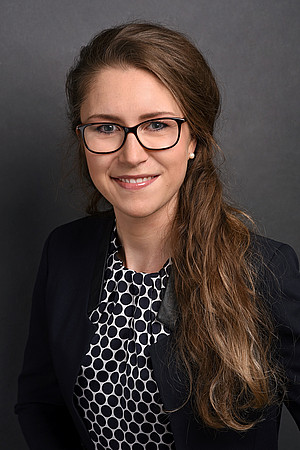
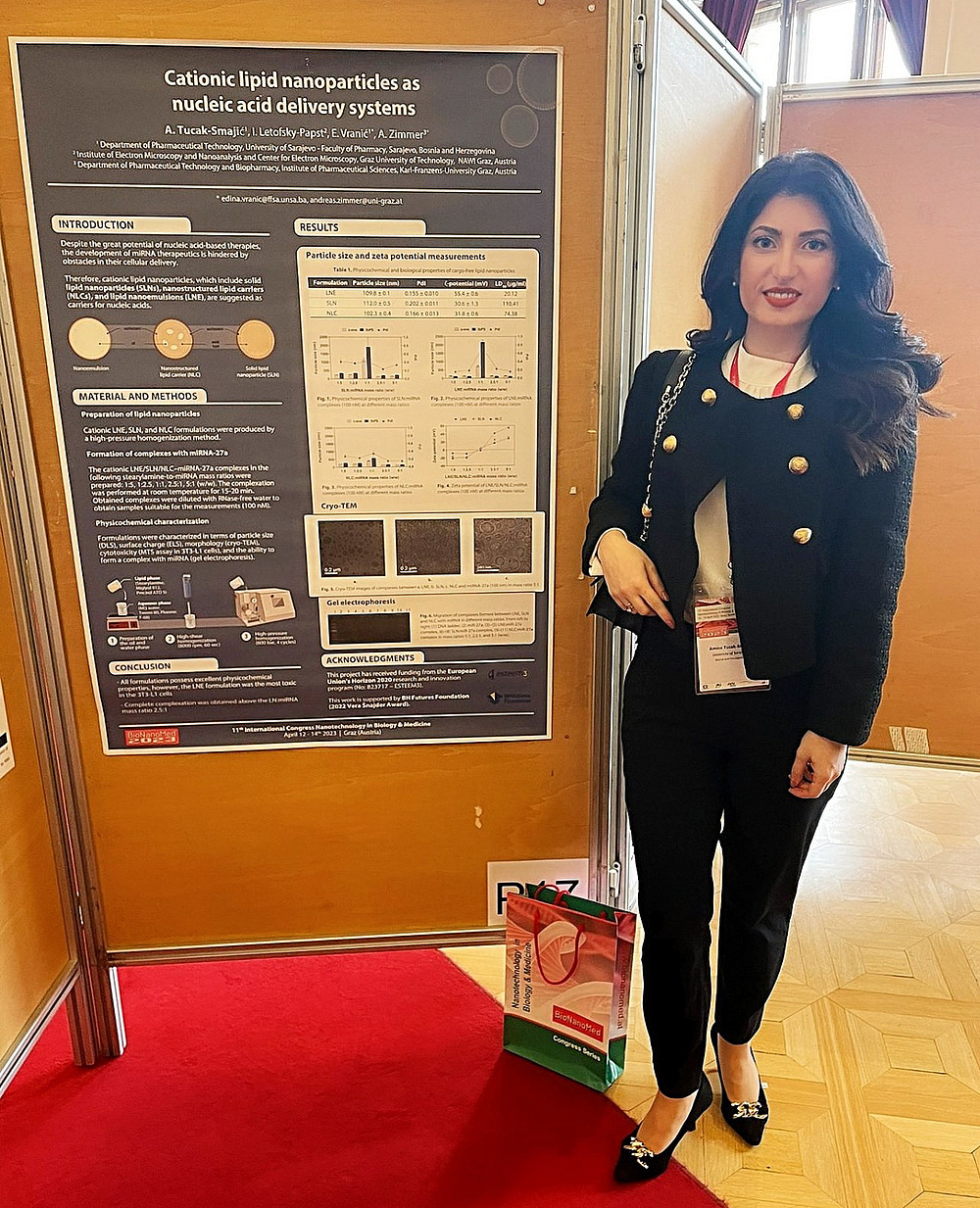
PhD Amina Tucak-Smajić
Guest PhD at the Institute of Pharmaceutical Sciences
1) What field of research are you working in and how did you get into it?
My PhD is focused on the development and characterization of cationic lipid nanoparticles as a career for miRNAs. This research path was shaped under the guidance of my mentors, Prof. Dr. Andreas Zimmer at the University of Graz and Prof. Dr. Edina Vranić at the University of Sarajevo. My journey began when I, as a Master's student, had the opportunity to visit the Department of Pharmaceutical Technology and Biopharmacy, where I met the whole team and department facilities. Later, as a guest PhD student, due to the great effort of my mentors, I conducted the entire experimental phase of my PhD in Graz through CEEPUS mobility and joint scientific cooperation, benefiting from the advanced infrastructure and expertise available at the University of Graz.
2) What do you find fascinating about your field of research?
The most fascinating aspect of my research in miRNA-based therapeutics is the dynamic and rapidly evolving nature of this field. Although there are still no such drugs on the market, with the rapid development of technology, I believe that drugs based on miRNA technology will revolutionize medicine. Being one of the researchers in this field is something I am very proud of!
3) What aspect of your work is particularly enriching for you?
The most enriching aspect of my work is the continuous learning and adaptability it demands. Being in academia, the dynamic nature of the field means staying abreast of discoveries and being brimming with ideas for upcoming projects. The challenge and responsibility of staying at the forefront of knowledge keep my work, both intellectually stimulating and fulfilling.
4) What do you particularly like about Graz as a university location?
What I particularly like about Graz as a university location is its vibrant, student-friendly atmosphere. The city is renowned for its excellent infrastructure, offering a conducive environment for learning. The University of Graz, equipped with state-of-the-art laboratories, provides a remarkable opportunity for both local and international students to delve into cutting-edge technologies. Graz is a beautiful and lively city that fosters a diverse community of students from various nationalities. The proximity of amenities makes student life so convenient! Living there was one of the best things in my life as I gained incredible friends there.
Linda Tropper
Master student at the Institute of Pharmaceutical Sciences in the field of Pharmacognosy
1) When your environment or your family asks you: Why Pharmaceutical Sciences specifically? What do you answer?
Already in the lower grades, I considered studying pharmacy. This idea strengthened in the upper grades, as chemistry had already become one of my favorite subjects, and when teachers asked about the career path I would like to pursue after school, I always answered with "pharmacist."
The profession in the pharmacy has always fascinated me the most, as it combines interaction with people, magistral activities in the laboratory, and the application of the extensive knowledge acquired during pharmacy studies.
2) What surprised or excited you the most during your studies?
I was both surprised and excited by the variety of different areas that the study of pharmacy has to offer. Whether it's pharmacognosy, pharmacology, pharmaceutical technology, or pharmaceutical chemistry, the total of 18 laboratory exercises over the course of the studies provide a huge insight into all areas. In addition, elective courses offer the opportunity to participate in excursions to pharmaceutical companies, or interesting lectures by doctors, bringing interactive elements and variety to the study.
3) What do you particularly like about the University of Graz campus?
The short distance between the various institutes makes everyday university life easier by allowing students to move quickly between lectures or laboratory exercises. Bright, open study areas, including the library in the immediate vicinity, offer a wide range of learning opportunities.
To escape the stressful university routine, there are cafés, restaurants, bars and, depending on the season, “Spritzer” or “Glühwein” stands around the university campus, and the evening events organized by the university also offer opportunities to clear your head and exchange ideas with other students.
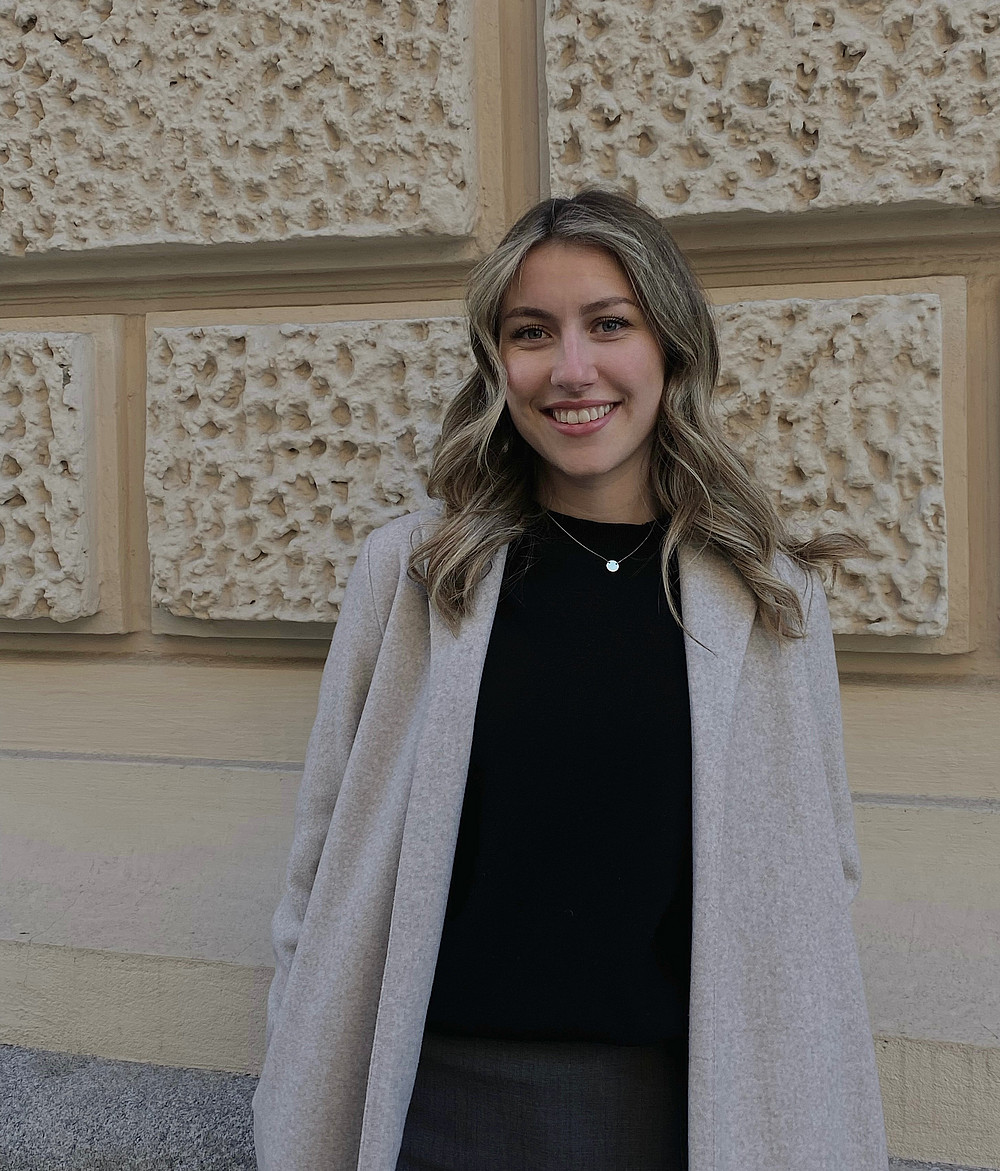
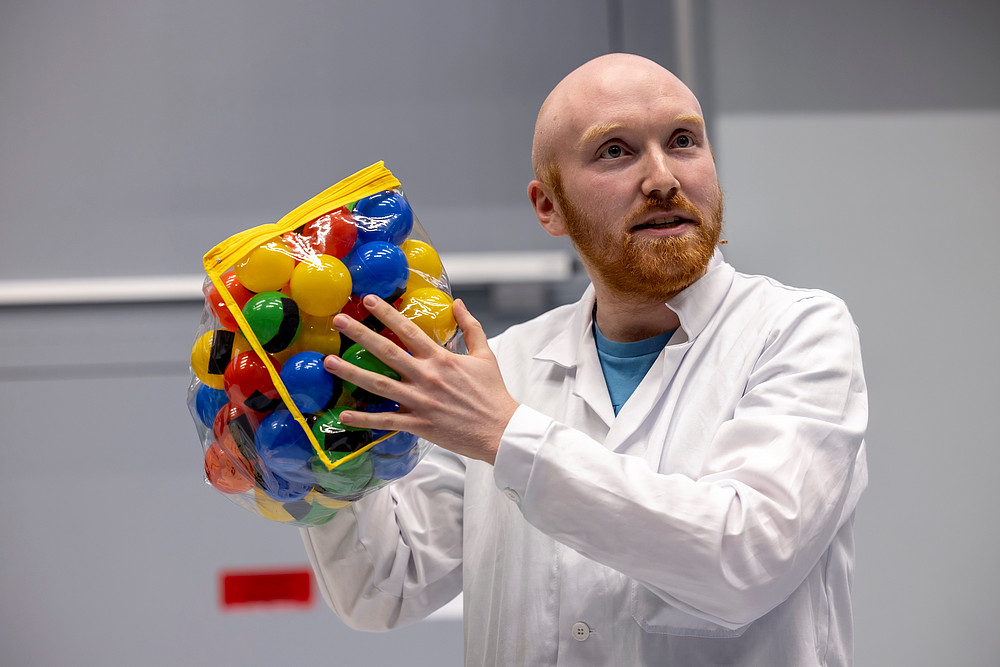
Henrik Siboni
MSc, Physicist, in the field of Pharmaceutical Technology & Biopharmacy
1) What area of research are you working on and how did you get into it?
I work with the investigation of nanoscale drug delivery systems using atomic force microscopy as my PhD project. In other words, I study nanoparticles with a very sharp needle that can resolve individual nanostructures that you could not see in a regular microscope. This is a collaboration with the Single Molecule Chemistry group at the Institute of Chemistry and part of the Doctoral Academy NanoGraz.
2) What do you find fascinating about your field of research/dissertation?
As a physicists, I really like that I get to work with exciting physics, but at the same time contribute to the pharmaceutical sciences which has the clear goal of helping people. As an interdisciplinary project, it is a good opportunity to push the field in a new direction.
3) What aspect of your work is particularly enriching for you?
Other than the PhD work in and of itself, the interdisciplinary work between the different institutes is a very interesting challenge. I also quite enjoy communicating science to the public and when teaching.
Ivana Ruseska
PhD at the Institute of Pharmaceutical Sciences, Department Pharmaceutical Technology & Biopharmaceutics
1) What field of research are you working in and how did you get into it?
Currently, my research is focused on investigating the uptake and intracellular trafficking of peptide- and lipid-based nanoparticles, used as delivery systems for microRNA (miRNA). My scientific journey began during my master studies, wherein I investigated the uptake pathways of polymeric nanoparticles and came to Graz to conduct parts of my experimental work. Interested in molecular biology and pharmaceutical technology, I was curious to know the potential of pharmaceutical nanotechnology in bridging the gap between the two fields. This led to me doing and obtaining my PhD at the University of Graz.
2) What do you find fascinating about your field of research?
What captivates me the most is the depth and complexity of the subject. The interplay between nanoparticles and cells is remarkably complex and versatile, giving rise to intricate intracellular processes. Each conducted experiment brings us closer to better understanding the intracellular fate of nanoparticles. Nevertheless, we remain humbled by the vast extent of what is left to be discover
3) What aspect of your work is particularly enriching for you?
The aspect that I find particularly rewarding about my work is that it is perpetually stimulating. Working in an exceptionally dynamic and competitive field, I am motivated to think innovatively and embrace risks. It is very fulfilling to work in an environment that demands ongoing learning and continual improvement.
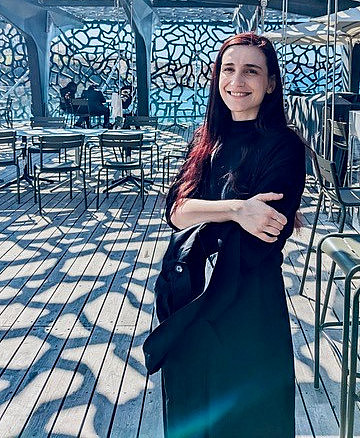
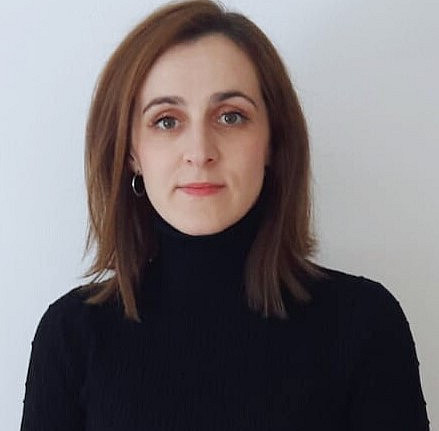
Atida Selmani
Scientist at the Institute of Pharmaceutical Sciences
1) What field of research are you working in and how did you get into it?
My research topic is oriented towards design of metallic and metal oxide nanomaterials as a drug delivery systems. The nanoparticles act as the drug or they serve as the drug carriers depending on their properties that can be easily tailored.
2) What do you find fascinating about your field of research?
The fascinating part of my research for me is how I could change the behaviour of nanoparticles by changing their size, shape and the “dress they wear” (surface coating). I try to trick the body which is a super intelligent mechanism with those different dresses and some other things, hoping my “nano Trojan horse” will go under the radar and help to prevent, mitigate or even cure various medical conditions.
3) What aspect of your work is particularly enriching for you?
The most enriching part for me is that I see the whole picture, starting from design, fabrication and tailoring the nano entity for a certain purpose and estimate/predict their behaviour in our body once when they are administered.
Martin Reiser
1) Which fields of work does your exactly?
As a chemical-technical assistant (CTA), I support my colleagues in laboratory operations, manage the laboratories and help with research projects and laboratory exercises (LU). My activities include, for example, the procurement and administration of laboratory, laboratory chemicals and materials, maintaining and checking laboratory equipment, training new employees in the laboratory or on laboratory equipment, assisting with teaching and much more.
2) What do you do at the Institute of Pharmaceutical Sciences?
Together with my colleagues we investigate the size distribution of nanoparticle dispersions, determine the flow behavior of size distribution, using rheology to determine the flow behavior of creams and gels or analyze the release of active ingredients from nanoparticle systems using liquid chromatography. Working with differential scanning calorimetry (DSC) we can determine the thermal behavior of different pharmaceutical substances and in our cell culture laboratory we grow cells for further experiments.
In the LUs, we produce tablets and pellets with tablets and pellets with the students, show them how to characterize them characterize them or how to produce nanoparticles.
3) What do you like best about your day-to-day work?
It never gets boring, and I can always switch between the office and the lab. I can organize my work as far as possible and organize it myself. And even though a lot of it is routine
there are always new tasks and challenges to overcome.
4) What do you find particularly enrichment about your work?
On the one hand, it's great to be involved in research. I am always delighted when things go well in the lab and everything is well organized and maintained. And it's always great to see when
students successfully complete their master's or doctoral theses and start a new phase of their lives.
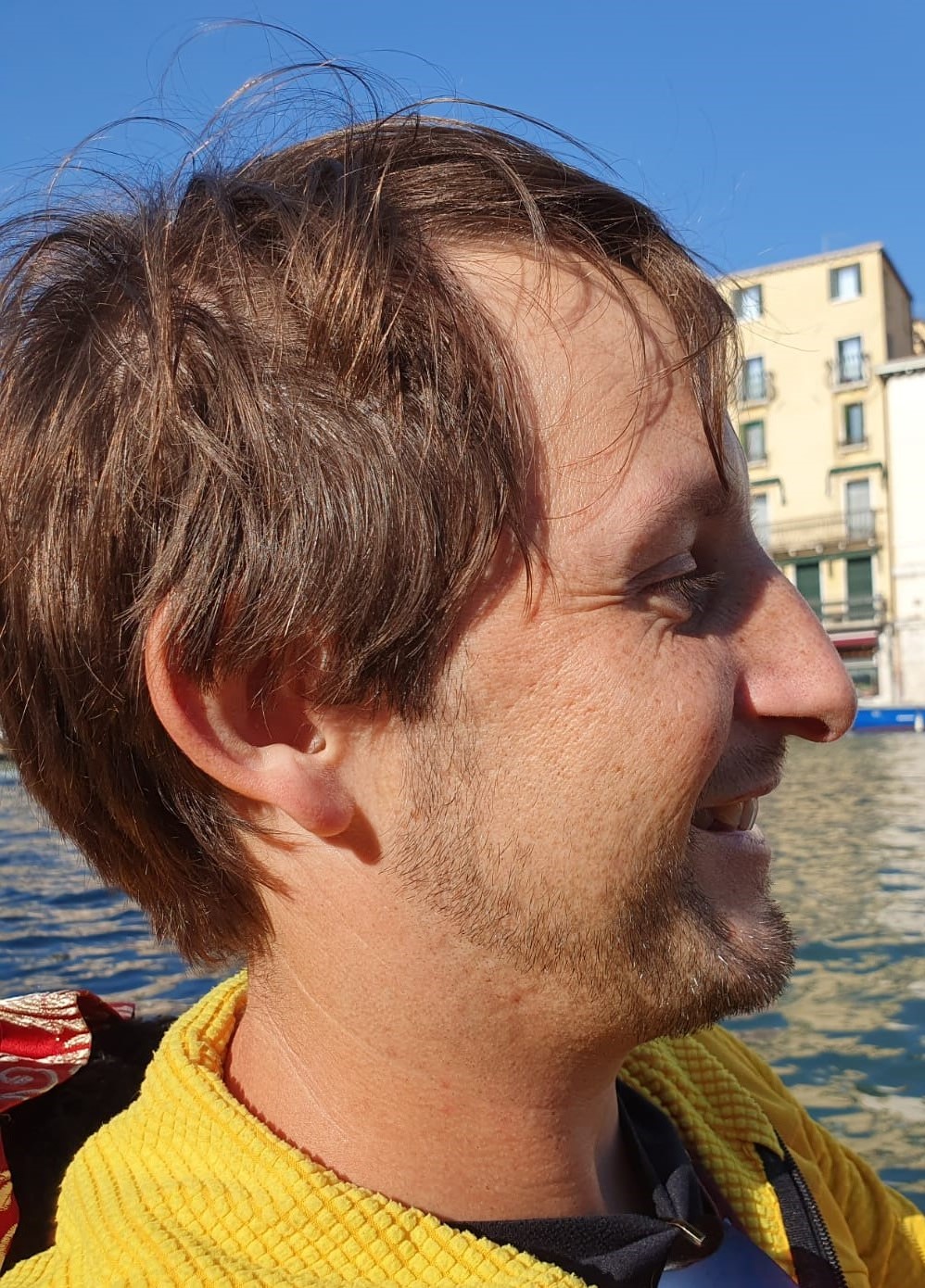
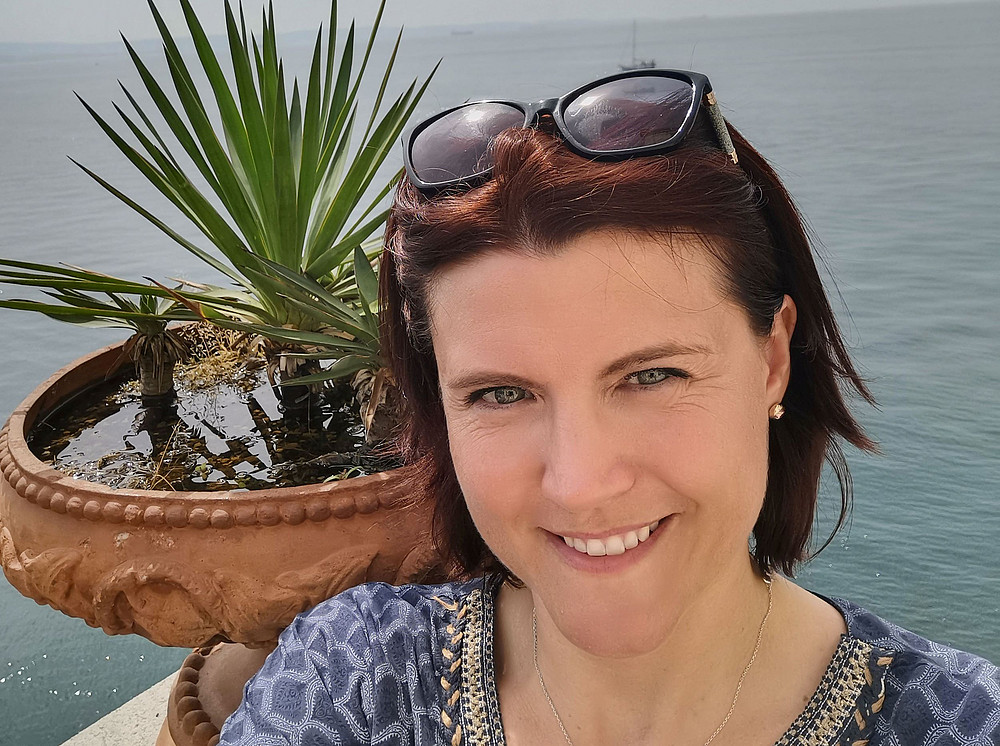
Gabriele Kolany
Chemical laboratory technician at the Institute of Pharmaceutical Sciences
1) What exactly does your work involve?
My activities include, for example, supervising sterile work during internships, aseptic work in cell culture and carrying out orders for teaching and research operations
2) What do you like best about your day-to-day work?
I particularly appreciate the variety in my day-to-day work and the interaction and collaboration with students and colleagues.
3) What do you find particularly enriching about your work?
The team spirit and support from my dear colleagues, which has led to many a friendship developing over the years.
